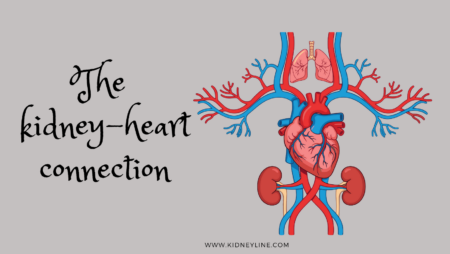Vomiting blood can be very scary. The medical name for it is hematemesis, and it is a serious condition. While chronic kidney disease (CKD) can sometimes cause this, many other conditions can also lead to vomiting blood. That is why it is important to see a doctor right away. Never assume it is just because of your kidney problem.
What Causes Vomiting Blood?
There are many reasons why someone might vomit blood. The most common causes include:
- peptic ulcer disease
- Inflammation of the food pipe or stomach, which may happen with acid reflux or infections
- Swollen veins in the esophagus, often found in people with liver problems
- A tear in the esophagus after a lot of vomiting
- Medicines like aspirin, NSAIDS, or blood thinners that make bleeding more likely
These problems can happen to anyone, not just people with CKD. That is why doctors will check for these causes first.
How CKD Can Play a Role
CKD affects more than just the kidneys. In later stages, it can cause waste to build up in the blood. This can irritate the lining of the stomach, leading to something called uremic gastritis. This means the stomach becomes inflamed and may start to bleed.
CKD also makes it harder for the blood to clot. This is partly because of cells called platelets. Platelets are tiny parts of your blood that help stop bleeding. When you get a cut, platelets help form a plug or clot to stop the blood from flowing. In CKD, platelets do not work well. This means that even small injuries in the stomach can bleed more than normal.
Also, some CKD patients are on blood thinners for heart disease or during dialysis. These medicines make it even easier to bleed.
Warning Signs to Watch For
Vomiting blood is always serious. Some signs mean the bleeding could be life threatening and you should get help fast:
- Vomiting bright red blood or blood clots
- Black or sticky stools
- Feeling dizzy, weak, or faint
- Cold and sweaty skin
- Fast heartbeat or low blood pressure
- Confusion or trouble thinking clearly
These signs may mean the bleeding is severe.

What Will the Doctors Do?
Doctors will check how much blood has been lost and find out where it is coming from. They may:
- Take blood tests to check for anemia and kidney function
- Use a camera test called an endoscopy to look inside your stomach
- Do scans or X rays if needed
- Check your stools for hidden blood
How Is It Treated?
First, doctors will help you feel stable. They may give fluids or blood through a vein. You may also get medicine to lower the acid in your stomach. If they find where the bleeding is coming from, they can stop it using tools during the endoscopy. They may also stop or change any medicines that make bleeding worse.
If the bleeding is from uremic gastritis, they may adjust your dialysis or give you medicine to remove toxins.
How to Lower the Risk
If you have CKD, you can take steps to lower your chances of vomiting blood:
- Avoid pain medicines like ibuprofen unless your doctor says it is okay
- Go to regular kidney checkups
- Keep your blood pressure and blood sugar under control
- Tell your doctor if you feel stomach pain, have dark stools, or feel weak
- Do not smoke or drink alcohol, as these can harm your stomach
- Follow your doctor’s advice on your diet and medicines
Conclusion
Vomiting blood is not normal and should never be ignored. While CKD can make it more likely, other causes are often to blame. Get medical help right away. With fast care and good habits, people with CKD can lower their risk and stay safer.




